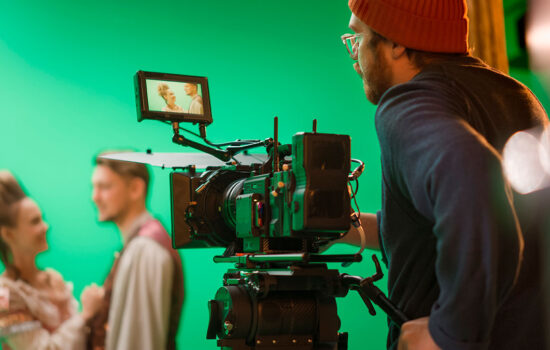Cinematography is a captivating and challenging field that requires a unique blend of technical expertise, creative vision, and collaboration. Cinematographer, often referred to as DPs (Directors of Photography), play a pivotal role in bringing stories to life through the lens of a camera. Here is a comprehensive guide to success in the world of cinematography:
- Master the Technical Fundamentals: Start by developing a deep understanding of the technical aspects of cinematography. Learn about camera operation, lens selection, lighting techniques, and camera settings. Familiarize yourself with various camera systems, from traditional film cameras to digital cinema cameras.
- Study the Art of Visual Storytelling: Cinematography is not just about capturing images; it’s about conveying emotions, themes, and narratives through visuals. Study the principles of visual storytelling, composition, framing, and shot design. Learn how to use camera movement and angles to enhance the story’s impact.
- Build a Diverse Portfolio: Create a portfolio that showcases your versatility as a cinematographer. Work on a variety of projects, including short films, documentaries, music videos, commercials, and corporate videos. This diversity demonstrates your adaptability and range as a cinematographer.
- Collaborate Effectively: Cinematography is a collaborative art form. Develop strong communication and teamwork skills. Collaborate closely with directors, producers, production designers, and other crew members to bring the director’s vision to life.
- Mastery of Lighting: Lighting is at the heart of cinematography. Learn how to manipulate natural and artificial light sources to create mood, atmosphere, and visual impact. Experiment with different lighting setups and techniques to expand your skill set.
- Stay Current with Technology: Cinematography is an ever-evolving field with rapidly advancing technology. Stay up-to-date with the latest camera systems, software, and post-production tools. Familiarize yourself with digital workflows, color grading, and visual effects.
- Continuous Learning and Education: Attend workshops, seminars, and film schools to further your education and skills. Learn from experienced cinematographers and industry professionals. Never stop seeking opportunities for growth and improvement.
- Develop a Signature Style: While versatility is essential, it’s also valuable to develop a signature style or visual aesthetic that sets you apart as a cinematographer. Your unique style can become your calling card in the industry.
- Networking and Relationship Building: Build a strong network within the film and media industry. Attend film festivals, industry events, and join professional organizations. Cultivate relationships with directors, producers, and fellow cinematographers.
- Handle Pressure and Tight Schedules: Cinematography often involves long hours and tight production schedules. Develop the ability to work under pressure while maintaining the quality of your work. Adaptability and problem-solving skills are crucial.
- Embrace Feedback and Critique: Be open to feedback and constructive criticism. It’s through critique that you’ll grow and refine your craft. Seek mentors or experienced cinematographers who can provide guidance and mentorship.
- Market Yourself: As a cinematographer, you’re also a freelancer or entrepreneur. Learn how to market yourself effectively, create a professional online presence, and promote your work through social media and a personal website.
- Stay Passionate and Inspired: Cinematography is an art form, and passion is its driving force. Stay inspired by watching films, exploring other art forms, and continuously seeking new creative challenges.
In the world of cinematography, success is often measured by the impact your work has on audiences and the stories you help bring to life. With dedication, continuous learning, and a commitment to your craft, you can forge a rewarding and fulfilling career as a cinematographer, leaving your mark on the world of cinema.




